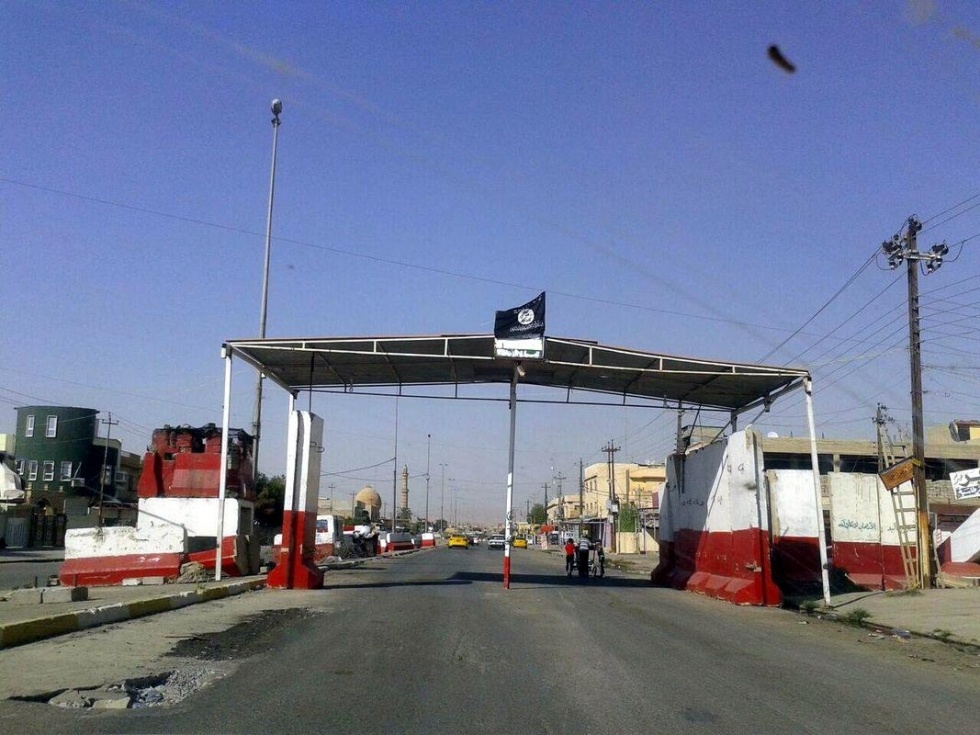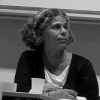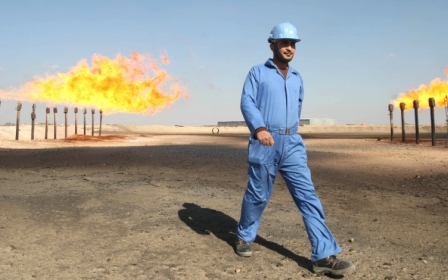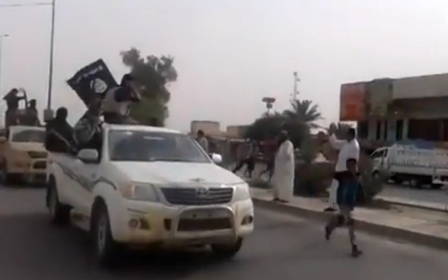Why did Mosul welcome ISIL?

Streets crowded with pedestrians and cars. Markets busy, with clothing and household provisions shops open, and vegetables and fruit stalls in their spots of old. The smell of fresh bread wafting from the bakery. Women and men shopping or going to work. A strange sense of time and place. People no longer late for work because of blocked streets and military checkpoints chocking them and the whole city over the last 10 years. There is the sense of confusion of the prisoner just released, taking his or her first steps outside the prison walls. How does one moves in his city without military checkpoints? Without a bunch of recruits or mercenaries who cover their ignorance and inferiority complexes by humiliating the people of the city at every turn?
Are we in the capital, Baghdad, protected by "democratic government" which provides citizens with reassurance and stability? Maintaining the dignity and heritage and history? Keeping the heart of Iraq, its unity and diversity of the pulsating ethnic groups and religions and doctrines? Is it Baghdad with the promise of freedom and democracy fulfilled? Is it Baghdad where we heard at the time of the invasion: "give us a period of six months only and we will get rid of the occupation as we get rid of the tyrant"? Is it Baghdad where life was reduced to merely staying alive, with the hope of waking up on the morning to a day without assassinations, arrests and torture for someone dear or near?
No, this is not Baghdad, supposed to be living in safety, with security layers guarding the headquarters of the ruling party with its army, its "golden brigade", and its special forces. Next to the US headquarters of the largest embassy in the world. Fort Green Zone.
The image that I am talking about is the reality of the city of Mosul, as described by Mosul people themselves. They testified so in the past few days to the few courageous media who dared to pass on the details through the barrier of censorship and global accusations of aiding ISIL terrorism.
But, why would the people of Mosul, the second-largest of Iraqi cities and provinces, a city of culture, science and long history, the city that gave Iraq so many of its doctors, academics and historians, welcome ISIL terrorism? Has their moral compass to human values and civilization been damaged to the extent of expressing satisfaction for the presence of members of the organized barbarism in their midst? Why?
Here, we must look carefully at the picture of what has happened, and is happening now, in the city of Mosul, with a population of nearly two million. The event was extraordinary and astounding to everyone. The army senior officers had shed, within a few hours, their uniforms which they swore on their honour to wear in defence of homeland and people. The soldiers, on seeing their generals fleeing asked what they should do. The reply, and I quote was: "deal with it yourself" (in colloquial Arabic: "Dabbur Halek!"). So the soldiers looked after themselves and fled, leaving behind modern weapons, equipment and machines for which Iraqis and Americans paid billions of dollars.
Testimonies from many Mosul people who fled the city during the first two days of its fall is that they fled because of the reputation of ISIL barbarism, because of the flight of soldiers and the expected shelling of the city. But the refugees decided to return after hearing how calm life is, and that the fighters have encouraged residents to return to their jobs. The fighters had carried out in days what the Maliki system and the occupiers before it, with their huge resources and budgets, did not mange in 10 years: providing electricity, water supply and cleaning the city. Another point underscored by the people of the city, contrary to what is common to hear, is that there is calm and that they did not witness any assaults on people because of his ethnic and religious affiliations.
But how can ISIL, these terrorist, barbaric, brainwashed throat-cutters and eaters of human livers and hearts, mange to behave in this civilized and efficient way, not seen in the armies of the civilized world? Just compare that to the behaviour of the two armies in Iraq, the US and the British, with their record of massacres, arrests and rape of men and women, during the occupation of Iraq. How can the city actually "fall" in hours to a few hundred ISIL fighters? Doesn't that raise serious questions about the truthfulness of the story promoted by the Maliki regime and the US administration and its allies in the media, who suddenly rolled up their sleeves to defend its citizens against terrorism?
Nuri al-Maliki is selling the very same goods manufactured in Washington, labelled "war on terror". Its hallmark was the invasion of Afghanistan and Iraq. Under the same banner stand the rulers of scores of countries from Saudi Arabia to Egypt, to shield themselves and their age-old corruption. It is the ever-present stick to terrorize their people. The media and the intellectuals oblige the rulers either really scared by the stick or because of the carrots. So now even researching the truth is labelled terrorism, and an investigative reporter would not be proven innocent. Iraqis have long lived this suffocating situation. Those who dared to raise their voices in protest are either called an insignificant bubble or nests for the terrorist ISIL, in the words of al-Maliki. Often he regurgitated such phrases in his weekly broadcasts, repeatedly humiliating decent people and provoke their anger. As if the arrests, torture, executions and indiscriminate shelling are not enough.
You have to wonder why the people of Iraq should need ISIL to come with foreign fighters across the border in order to rise up to get rid of the sectarian unjust system. Is it really ISIL who liberated the city and been welcomed by the locals? Or is it the people of Mosul themselves that liberated the city, having exhausted all avenues of reasoning with a corrupt sectarian system? According to credible reports, several local and national old resistance factions, together with local tribal fighters, have worked with former Iraqi army officers to form the Military Council General of the Revolutionaries in Iraq. The media ignores this message, and the Council relies on websites and social networking.
ISIL, with its low numbers, are a double edged sword. Used by the Maliki regime to get US support, but also used by insurgents to terrorize the regime and its army. This is what had actually happened in Mosul. Inflating ISIL had terrorised the military command and the soldiers of the Maliki army and hastened their flight. On the other hand the General Military Council of the Revolutionaries distance themselves from ISIL, especially the council members themselves had fought Al Qaeda previously.
The overriding fear, today, in various parts of Iraq, is of the Maliki and US use of air power to destroy cities without discrimination, especially after the regime officially resorted to request the assistance of America. The signs point to the possibility of air strikes, and use of drones, as well as special operations teams. This has been legitimised the "war on terror" discarding the right of the oppressed and humiliated people to rebel.
The realization of democracy in Iraq must and will be carried out by Iraqis themselves, without foreign or regional intervention, or ISIL. The lessons of Iraqis politicians inviting intervention by the US and the UK for regime change must now be clear to all.
-Haifa Zangana is a Kurdish-Iraqi novelist, artist, and political activist. She has advised the UNDP and Brussels Tribunal. This article first appeared in Arabic in al-Quds al-Arabi newspaper.
The views expressed in this article belong to the author and do not necessarily reflect the editorial policy of Middle East Eye.
Photo credit: A view of the city centre of Mosul in Iraq on June 25, 2014 (AA)
New MEE newsletter: Jerusalem Dispatch
Sign up to get the latest insights and analysis on Israel-Palestine, alongside Turkey Unpacked and other MEE newsletters
Middle East Eye delivers independent and unrivalled coverage and analysis of the Middle East, North Africa and beyond. To learn more about republishing this content and the associated fees, please fill out this form. More about MEE can be found here.





